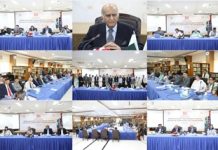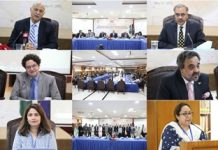Dr. Rasul Bakhsh Rais
Can Punjab show the way?
Punjab's politics today resemble the old politics. These are: patron-client relationships, expedient political alliances, exploitation of biraderi networks and use of governmental institutions to...
Beyond the judicial crisis
Pakistan has a long and complex history of democratic struggles against military regimes, but each time we failed to transform the movement into a...
Between despair and hope
What would define chaos better than a swift reconstitution of the judiciary, imposition of Emergency rule and holding the Constitution in abeyance? This institutional...
Behind the mask of terror
Who are these people, why do they cut short their lives and destroy themselves along with others, and what is the purpose, if any,...
At a crossroads again
The development of a collective national consciousness on critical issues is possible only through the medium of free debate and discussion that is meaningful,...
An unclear political path
Perhaps the regime thought that it was acceptable to take a hit politically and deport Sharif, instead of facing him in the streets of...
Afghanistan’s failing war
The United States and its Afghan allies need to reconsider their strategy and focus more on negotiating local and regional political settlements. They also...
A stitch in time
The United States is once again sending us tough messages and implied threats, and pushing us to revoke the Waziristan peace accord. Fighting the...
A long haul
Like political parties, civil society works in the public sphere but its aim is to discipline political power and influence its exercise in public...
A critical moment for Pakistan
Our weak political institutions and conspiratorial politics converted our victory against the dictator into political defeat. We failed to translate our struggle into democratic...







